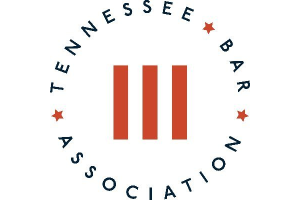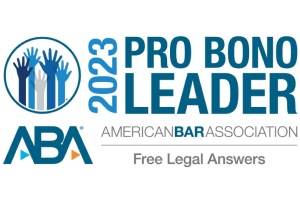for Workers
Sexual Harassment
Nashville Sex Harassment Lawyer

Enduring sexual harassment at work can be traumatic and devastating. The psychological impact of this type of workplace misconduct can lead to serious medical conditions such as depression, anxiety, lack of sleep, and panic attacks.
However, you do not have to tolerate being objectified and humiliated at work for the sake of “not rocking the boat” or keeping your job. You need a lawyer in your corner who you trust and who can take the fight to the company and the harasser.
Our Nashville sexual harassment attorneys fight for victims of workplace harassment. We exclusively represent employees in disputes with their employers, and our practice is dedicated to seeking justice and compensation for our clients to the fullest extent of the law.
If you were fired after enduring sexual harassment, do not wait to speak with a lawyer. In Tennessee, you have 300 days or less to file your legal claims with the EEOC. It is highly recommended you speak with an experienced sexual harassment lawyer before filing a complaint with the EEOC.
Contact us for a free online case review at the number above or online.
Overview of Workplace Sexual Harassment in Tennessee
Federal and Tennessee law prohibit severe or pervasive sexual harassment in the workplace. Sexual harassment is one of the most common and difficult employment situations to navigate, especially when the harasser is your boss. You want to report the misconduct but you are afraid of being fired or otherwise retaliated against. The law is on your side and it’s time to fight back.
Although sexual harassment often involves a younger woman being harassed by her boss, such harassment applies to any gender or job title. Inappropriate behavior from a co-worker, subordinate, or independent contractor may also be unlawful.
Common examples of workplace sexual harassment include:
- Invading of personal space including persistent leering or staring
- Frequent comments about your appearance/attractiveness
- Sexually explicit text messages or e-mails
- Sexual “jokes” or innuendos or “gag” gifts of a sexual nature
- Displaying sexual materials
- Solicitation of explicit pictures
- Repeated requests for a romantic date
- Asking about your sexual history
- Sexual coercion such as threats or pressure for sexual favors
- Criminal sexual conduct including physical assault and rape
- Harassment based on your LGBTQ status
Workplace sexual harassment often includes a combination of the above examples. Harassers and predators do not respect personal boundaries at all and often believe they are above the law. They are wrong. Harassing behavior that is hostile or abusive violates federal and state law.
Two Types of Sexual Harassment Claims
The law recognizes two kinds of sexual harassment claims: (1) Quid Pro Quo and (2) Hostile Work Environment. You should consult with an experienced sexual harassment attorney to know your legal rights and understand your potential claims.
1. Quid Pro Quo Sexual Harassment
Quid pro quo (“this for that”) sexual harassment occurs when your job is dependent on your acceptance or rejection of unwelcome sexual advances. In other words, your boss attempts to get sexual favors from you in exchange for your career advancement. If you do not submit, your career suffers. Sometimes, what starts as a consensual workplace romance fizzles and one party begins harassing and threatening the other. Maybe you received poor performance reviews as “pay back.” This is unlawful harassment under employment laws.
Examples of “Quid Pro Quo Sexual Harassment” may include:
- Being offered a pay raise for sexual favors
- Receiving a demotion or less favorable work assignment after declining your supervisor’s date requests
- Being threatened with termination if you do not submit to your boss’s sexual advances
2. Hostile Work Environment Sexual Harassment
“Hostile work environment” sexual harassment occurs when an employee is subjected to unwelcome sexual advances, touching, or crude sexual language that is so severe or pervasive that a reasonable person in your position would consider your work environment intimidating, hostile, or abusive. Courts assess many factors in determining whether or not you experienced an abusive work environment, including:
- Frequency of the harassment – “pervasive” means the harassment occurred over a period of time and it negatively impacts your work life and emotional well-being. Hostile work environment claims usually fall under this “pervasive” prong.
- Severity of the harassment – even one-time incidents may be serious enough in situations of physical assault, rape, or being fired or demoted for rebuffing sexual advances from your boss.
The fear and emotional trauma from workplace sexual harassment can be debilitating and you need an employment lawyer who can fight for you. Our law firm of Nashville employment lawyers aggressively advocates for employees who suffer from sex discrimination and harassment in the workplace.
Employer Liability for Workplace Sexual Harassment
Employers are legally responsible for the actions of their managers and other employees under the doctrine of “respondeat superior.” Put differently, your employer has a legal duty to protect you from unlawful harassment. An employer is automatically liable for harassment by a supervisor that results in a negative employment action such as termination, demotion, or denial of a pay raise. Also, if the company knew or should have known of harassment at the hands of a coworker, then it may be legally liable.
Federal and Tennessee Sexual Harassment Laws
In Tennessee, employees are protected against sexual harassment by Title VII of the Civil Rights Act of 1964 (Title VII) and the Tennessee Human Rights Act (THRA). Nashville employment attorney Curt Masker files harassment complaints on behalf of Tennessee workers with the Equal Employment Opportunity Commission (EEOC), and then federal court, for claims under both Title VII and the THRA.
Our firm of sexual harassment lawyers in Nashville takes most cases on a contingency fee basis, so there is never a fee unless we win.
Sexual Harassment under Title VII
Title VII of the Civil Rights Act of 1964 (Title VII) is a federal anti-harassment law that applies to employees across the U.S.
- Prohibits sexual harassment as a form of “sex” discrimination
- Only applies to employers with 15 or more employees
- Requires a charge be filed with the EEOC prior to bringing suit in court
- 300 day statute of limitation (for Tennessee charges)
- Makes unlawful severe or pervasive workplace harassment (does not apply to simple teasing or offhand remarks)
- Damages for emotional pain and to punish the employer are capped
Sexual Harassment under the Tennessee Human Rights Act
The THRA is Tennessee’s anti-harassment law that prohibits discriminatory behaviors in the workplace.
- Prohibits sexual harassment as a form of “sex” discrimination
- Generally construed identically with Title VII
- Applies to employers with 8 or more employees in Tennessee
- Tennessee Human Rights Commission can investigate complaints, but filing a charge is optional (claims must be filed within one year statute of limitation)
- Punitive damages are not available
- Damages for emotional pain and suffering are capped
Unlawful Retaliation for Reporting Sexual Harassment
If you are currently being sexually harassed at work, you are probably worried about losing your job if you report the harasser to human resources. While these concerns are real and legitimate, federal and state laws prohibit retaliation against an employee who reports workplace harassment, including filing a charge with the EEOC, reporting harassment to human resources, or bringing a lawsuit against the company. As such, you cannot be legally fired, demoted, or treated poorly for complaining about the harassment.
How Much Money Is a Tennessee Sexual Harassment Case Worth?
The value of a given case varies significantly based on many factors, most of which are outside of your control, such as the severity of the harassment, how much money you have lost in earnings and benefits (if terminated), the type and quality of evidence, the employment laws implicated, and whether or not you reported the harassment, and if the harasser or company have discriminated against people in the past. To know what your case may be worth, contact our sexual harassment lawyers serving Nashville.
Note that compensatory and punitive damages are subject to statutory caps based on the size of the company. For an in-depth discussion of how much your case may be worth, please see How Much Is a Tennessee Employment Case Worth?
Statute of Limitations for Sexual Harassment Claims in Tennessee
Sexual harassment claims have strict deadlines called statute of limitations. If you miss this deadline then you will be barred from going to court. If you may have claims do not wait, contact an employment lawyer right away to know your deadlines. For many Tennessee harassment claims you have as little as 300 days to file a complaint with the Equal Employment Opportunity Commission. Always speak with an experienced employment lawyer before filing an EEOC complaint to know your legal rights (read why here).
It’s Time to Fight Back – Contact Rickard Masker, PLC
You deserve justice for the harassment you have endured. Our Nashville-based sexual harassment lawyers hold employers accountable for refusing to prevent sexual harassment in the workplace.
Contact us for a free and confidential online case review at the number above or online.














